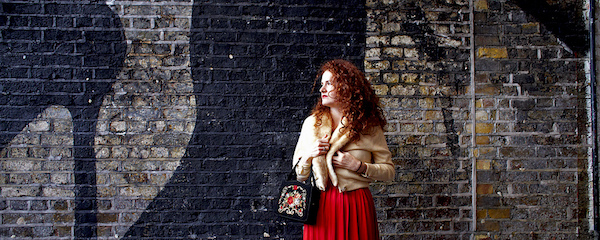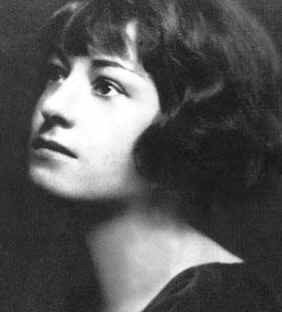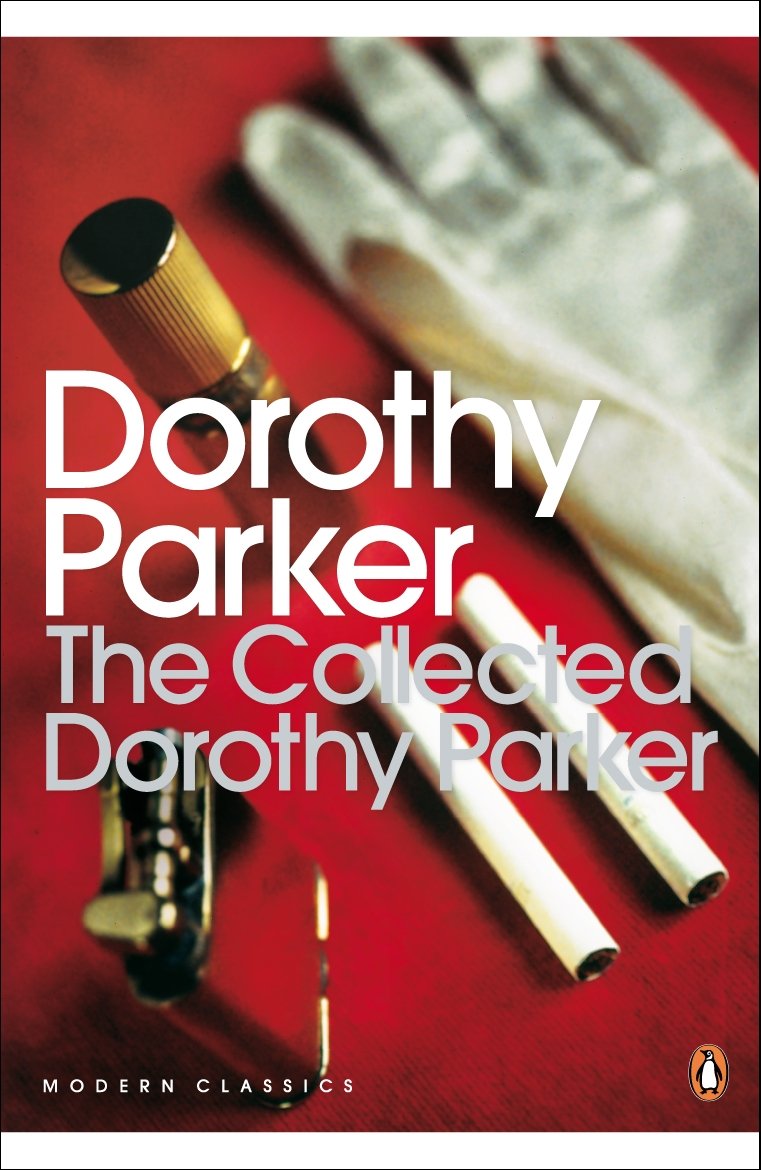
('Brick Lane Fashion' © Nuii Sasamon Rattanalangkarn, 2011)
*
LOITERING AND SAUNTERING: DOROTHY PARKER AND THE STANDARD OF LIVING
by USCHI GATWARD
*
Our gross national product counts air pollution and cigarette advertising […] the destruction of our redwoods and the loss of our natural wonder in chaotic sprawl […] Yet […] measures neither our wit nor our courage; our wisdom nor our learning; it measures everything, in short, except that which makes life worthwhile.
– Robert F Kennedy, ‘Remarks at the University of Kansas’, 1968
I think that this story of mine is the nicest bit of writing, the most careful, that I have ever done. The story, of course, is not half what I meant it to be; it never is. It was supposed to tear your heart out, and it does not. But as to workmanship, it is my best.
– Dorothy Parker, introducing ‘The Standard of Living’ in This is My Best, 1942
~
I first read ‘The Standard of Living’ more than twenty years ago and it remains my favourite short story, and Parker, who died fifty years ago this June, one of my favourite writers. First published in The New Yorker in 1941, it begins like this:
Annabel and Midge came out of the tearoom with the arrogant slow gait of the leisured, for their Saturday afternoon stretched ahead of them.
If we didn’t know we were reading Parker, we’d know at least that we were reading irony. Annabel’s and Midge’s leisure is a temporary state, lasting the whole of Saturday afternoon – although, with that ‘stretched’, its horizons seem limitless.
I think there may be a cursory nod in the line to Thorstein Veblen’s Theory of the Leisure Class. Parker was certainly familiar with the Veblen: her friend and Vanity Fair office-mate Robert Benchley – their cable address was Parkbench – had awarded it the accolade ‘Dullest Book of the Month’.
The story continues, famously:
They had lunched, as was their wont, on sugar, starches, oils and butterfats. Usually they ate sandwiches of spongy new white bread greased with butter and mayonnaise; they ate thick wedges of cake lying wet beneath ice cream and whipped cream and melted chocolate gritty with nuts. As alternates, they ate patties, sweating beads of inferior oil, containing bits of bland meat bogged in pale, stiffening sauce; they ate pastries, limber under rigid icing, filled with an indeterminate yellow sweet stuff, not still solid, not yet liquid, like salve that has been left in the sun. They chose no other sort of food, nor did they consider it. And their skin was like the petals of wood anemones, and their bellies were as flat and their flanks as lean as those of young Indian braves.
 The diction is formal and elegant (Parker’s diction of choice in her reviews too – Benchley called it ‘saying it in evening clothes’), but also that of fairy tale, with its Biblical ‘And’, its archaic constructions, its sensuous adjectives, nouns, and verbs, and its sudden rush away from the city towards wildness and beauty and danger and courage.
The diction is formal and elegant (Parker’s diction of choice in her reviews too – Benchley called it ‘saying it in evening clothes’), but also that of fairy tale, with its Biblical ‘And’, its archaic constructions, its sensuous adjectives, nouns, and verbs, and its sudden rush away from the city towards wildness and beauty and danger and courage.
It is well into summer, the salve in this first paragraph tells us. Annabel and Midge are, as The New Yorker chooses to introduce them, ‘two little 18-dollars-a-week stenographers’ – interestingly, Parker herself mocks but never patronises them. The story is a simple one: an account, building to a punch line, of these two newly inseparable friends playing the ‘ancient sport of what-would-you-do-if-you-had-a-million-dollars’. It is a classic redemption narrative.
Straight away, Parker tells us who the girls are: ‘Annabel and Midge did, and completely, all that young office workers are besought not to do.’ How that parenthetical ‘and completely’ – a typical Parker locution – makes the sentence. Very funny – and very useful for the story, which hinges on the absolute commitment that Annabel and Midge devote to their pastimes.
They painted their lips and their nails, they darkened their lashes and lightened their hair, and scent seemed to shimmer from them. They wore thin, bright dresses, tight over their breasts and high on their legs, and tilted slippers, fancifully strapped. They looked conspicuous and cheap and charming.
I like that last adjective’s placement: how it subverts grammatical expectation and lends the whole sentence, the whole paragraph really, a tone of approval; the preceding two are essentially neutral, after all – or at least ambiguous. The meaning turns on a dime. (In the New Yorker version, the antepenultimate adjective is ‘proud’: the more slippery ‘conspicuous’ is much better, and enables the switchback.)
The action of the story is viewed from the middle-distance, mediated through the amused authorial viewpoint. You, the reader, are likely older than the protagonists, almost certainly better educated, more ‘leisured’, with greater disposable income and more sophisticated tastes; Annabel and Midge do not, I think, read The New Yorker. The story works these assumptions.
Dramatic irony by definition requires the reader to know better than the characters; as a device it becomes somewhat problematic when applied – as often in Parker – to characters less privileged than the author. Parker makes it work. She delineates quite carefully the circumstances and structures that direct and constrict her characters’ actions and prospects. Whilst her less privileged characters (here and elsewhere) strive to have agency over their lives, the efficacy of this agency is downplayed; they are subject to larger strictures: class or race dynamics, economics, market forces. Parker was a communist, albeit the kind that wore Valentino and had staff.
It is all very lightly done: here, the throwaway line about renting your family a new apartment with some of your cool million tells us that each family, possibly quite large, and including at least parent(s), and perhaps younger siblings, shares an apartment – and one that it would be a priority to upgrade if money became available. We know that the families can’t keep their adult daughters at home without a contribution.
Within the real world, there is little Midge and Annabel can do to improve their lot. A skilled, white-collar job, which they already have, is the summit of their career prospects. They can hold out for those incremental raises – which they will get whether or not they paint their nails – but already they earn more or less what they will ever earn. They might marry ‘up’, but not by much (listen to their accents in that dialogue: not the kind that travel).
For Midge and Annabel, with their parents still alive, a roof over their heads and some money to spend – plus a free choice of interchangeable young men – this is as good as it gets. All of which freights the comedy; there is certainly an implied prolepsis. And this is where we must turn to magic, or escapism. Not, in Annabel-and-Midge’s case, a pre-breakfast snifter, but a fantasy about a mysterious benefactor.
How are we to construe this imaginary saviour? Not a husband or lover. Nor a rich aunt or uncle – they have none, of course. Not a lottery win. Nothing the girls have any agency over, but a kind of deus or dea ex machina who must, surely, materialise before the end of their story, come to save the day: ‘that girl ought to have lots of nice things’. Ought, not through ‘just reward’ or the American dream, but because Fortune liked the look of her. (There will be a redemption in this story, but it won’t be that one.)
 For all the social comment, the story is one of female friendship. It aces the Bechdel test. The only other named character is the tedious Sylvia, who serves as something of a foil to the protagonists, and also points up, through her attempt to contravene it, the internal logic of their fantasy universe. Felicitously, even ‘Mrs Gary Cooper’, rather than ‘Gary Cooper’s wife’, is name-checked. It is not that men are a scarce resource: the story teems with them, loitering about newsstands and whistling, accompanying the protagonists on dates, running shops and offices – but they have no meaning in the girls’ emotional world. The only male character with a speaking role is the unnamed store clerk – and he does threaten their equilibrium.
For all the social comment, the story is one of female friendship. It aces the Bechdel test. The only other named character is the tedious Sylvia, who serves as something of a foil to the protagonists, and also points up, through her attempt to contravene it, the internal logic of their fantasy universe. Felicitously, even ‘Mrs Gary Cooper’, rather than ‘Gary Cooper’s wife’, is name-checked. It is not that men are a scarce resource: the story teems with them, loitering about newsstands and whistling, accompanying the protagonists on dates, running shops and offices – but they have no meaning in the girls’ emotional world. The only male character with a speaking role is the unnamed store clerk – and he does threaten their equilibrium.
Up until then, the single crisis in this summer’s friendship is a dispute over the planned imaginary purchase of silver-fox furs. They are ‘common’, Midge tells Annabel. That is, they are within the purchase-reach of the masses, and therefore to be seen everywhere. Whatever their intrinsic worth, they have no Veblen value: there is no glory in being seen to wear one. Of course, there’s an additional irony in Midge’s eschewing an item because it is ‘common’.
The crisis passes. But then, one ‘hot and glaring’ day, the girls can’t get excited about fur coats: ‘fur, no matter how dark and sleek and supple, was horrid to the thoughts.’ (Let’s stop for a moment and admire that ‘horrid’, bristling hotly in the mind; few writers are as precise.)
They turn their attention to another window:
Cool, lovely gleamings were there set off by chaste and elegant darkness.
“No,” Midge said, “I take it back. I wouldn’t get a mink coat the first thing. Know what I’d do? I’d get a string of pearls. Real pearls.”
Annabel’s eyes turned to follow Midge’s.
“Yes,” she said, slowly. “I think that’s a kind of a good idea. And it would make sense, too. Because you can wear pearls with anything.”
Together they went over to the shop window and stood pressed against it.
Nudged in the ribs by the devil, we find ourselves in the shop. The store clerk’s soft voice and immaculate clothing… his trained lack of astonishment (nothing in here is sudden or loud)… the sibilance of his offer: “An exceptionally beautiful necklace.” Almost the snake in the Garden of Eden. “Would you care to look at it?”
The contrasting twang of Midge’s voice jarring in the well-appointed, softly-carpeted store… “My friend and myself merely happened to be passing.” I like the way Midge tests that phrase, with its bizarre reflexive pronoun and its ‘merely’, trying it on, repeatedly, to see if it suits her.
The girls have broken the spell – transgressed, as in any fairy tale, by crossing the threshold. And in so doing they have fallen victim to that terrible Parker trap: disillusionment. They should have let well alone. Back on the sidewalk, Annabel’s attack – “He’s got his nerve!” – is directed towards the clerk, and not the store itself. This is telling, I think: they are aware on some level that they have exposed themselves to scrutiny. There’s also a bit of who-do-you-think-you-are; he works in a shop, after all.
The girls droop and drag their feet, and Parker’s sentences become long and slow and Latinised, their initial syllables unstressed. And then, with a brilliant change of pace, the headlong urgency of that last speech of Midge’s is brought about by the introductory ‘Suddenly’, the ‘clear and strong’, the short sentences and monosyllables, the “Listen”, “Look”, “Well”, “Now” (and the stress that they give the first beats of those sentences), the sharp, rising inflection produced by the question marks, and the repetition of “see”.
There is much to admire in Annabel and Midge. They have dignity and they have swagger, which, with some fancy psychological footwork, Parker allows them to retain. The wonderfully layered trick that she pulls off is that we see the hopelessness – of which the girls are also cognisant – we see the irony undercutting the transcendence, and yet, for the reader too, the story ends on a note of buoyant hope.
‘The Standard of Living’ has a curious real-life coda. When Parker died, in a hotel room, surrounded by empty bottles, bad-smelling poodle and uncashed cheques, she left her own fortune to someone she’d never met but whom she’d admired from afar. Martin Luther King outlived Parker by only a few months, and on his death the assets, including copyright of all her work, transferred to the NAACP. The work is still under copyright and will be for another twenty years, and the NAACP collects the royalties. So today when you buy a Dorothy Parker book, you are also making a small donation to the American civil rights movement.
~
 Uschi Gatward’s stories have appeared in Best British Short Stories 2015 (Salt), Flamingo Land & Other Stories (ed. Ellah Allfrey, Flight Press), as a Galley Beggar Press Single and in the magazines The Barcelona Review, Brittle Star, gorse, The Lonely Crowd, Short FICTION, Southword, Structo and Wasafiri. She was shortlisted for The White Review Short Story Prize 2016.
Uschi Gatward’s stories have appeared in Best British Short Stories 2015 (Salt), Flamingo Land & Other Stories (ed. Ellah Allfrey, Flight Press), as a Galley Beggar Press Single and in the magazines The Barcelona Review, Brittle Star, gorse, The Lonely Crowd, Short FICTION, Southword, Structo and Wasafiri. She was shortlisted for The White Review Short Story Prize 2016.

